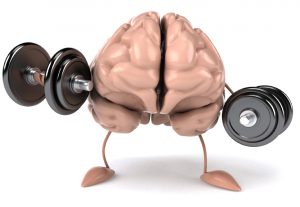Train Yourself to Good Mental Health
Regular exercise can play a role in significant reduction in depression and anxiety, improving mental health.
While most people hit the gym or trails for cardiovascular benefits, building muscle, training for a race, or losing weight, there are great benefits for mental health too. Many studies show that regular exercise can help you lead not just a healthier life physically, but mentally as well. Improved relationships, stress reduction, and a mood boost are just a few examples.
Top 8 effects exercise has on the brain: 
- Decreased stress. Exercise increases norepinephrine which increases the body’s ability to respond to stress. Even a 20 minute workout can help you “let it out” and feel better and improve mental health.
- Alleviate depression and improve self-esteem. An outdoor bout of exercise is especially effective. It feels awesome to breathe fresh air, be in nature, and get some vitamin D while you’re at it! Go for a hike, run, or a bike ride!
- Better sleep, less tension, and an easier time relaxing.
- Better mental focus and sharper memory. Exercise increases cell production in the hippocampus, the part of the brain responsible for learning and memory.
- Increased dopamine in the brain, a reward chemical.
- Decreased anxiety. Not only is a high intensity interval workout a great way to burn calories improving physical fitness, it’s also very effective for alleviating anxiety improving mental fitness.
- Healthy appetite. You will crave healthy foods like lean meats, veggies, and healthy fats.
- Prevent cognitive decline. Working out during the ages of 25-45 is especially effective at warding off mental decline as we age. Helping with our overall mental health.
It takes just 30 minutes of moderate exercise per day to get the above benefits! Physical and mental health will have you looking better and feeling better.